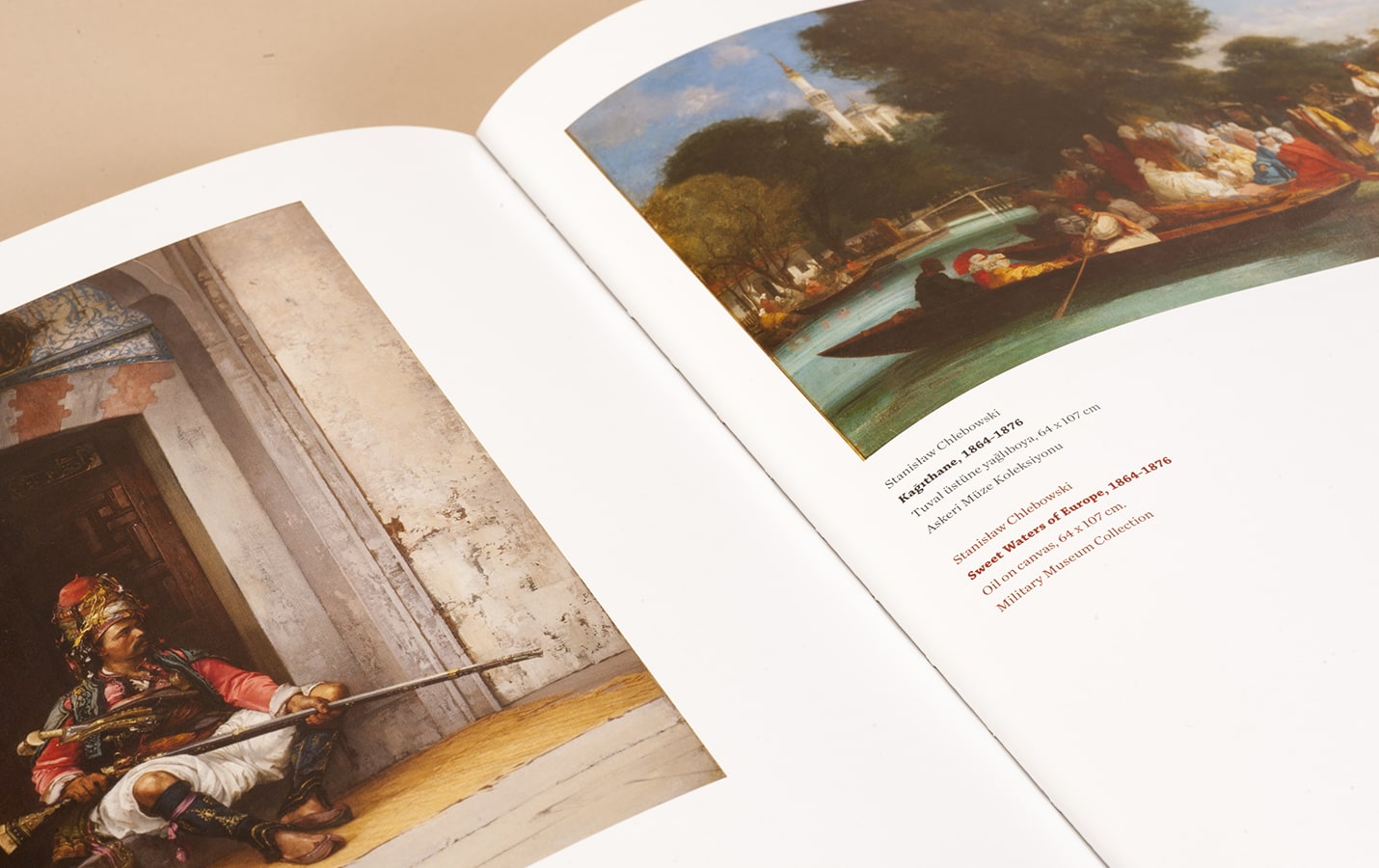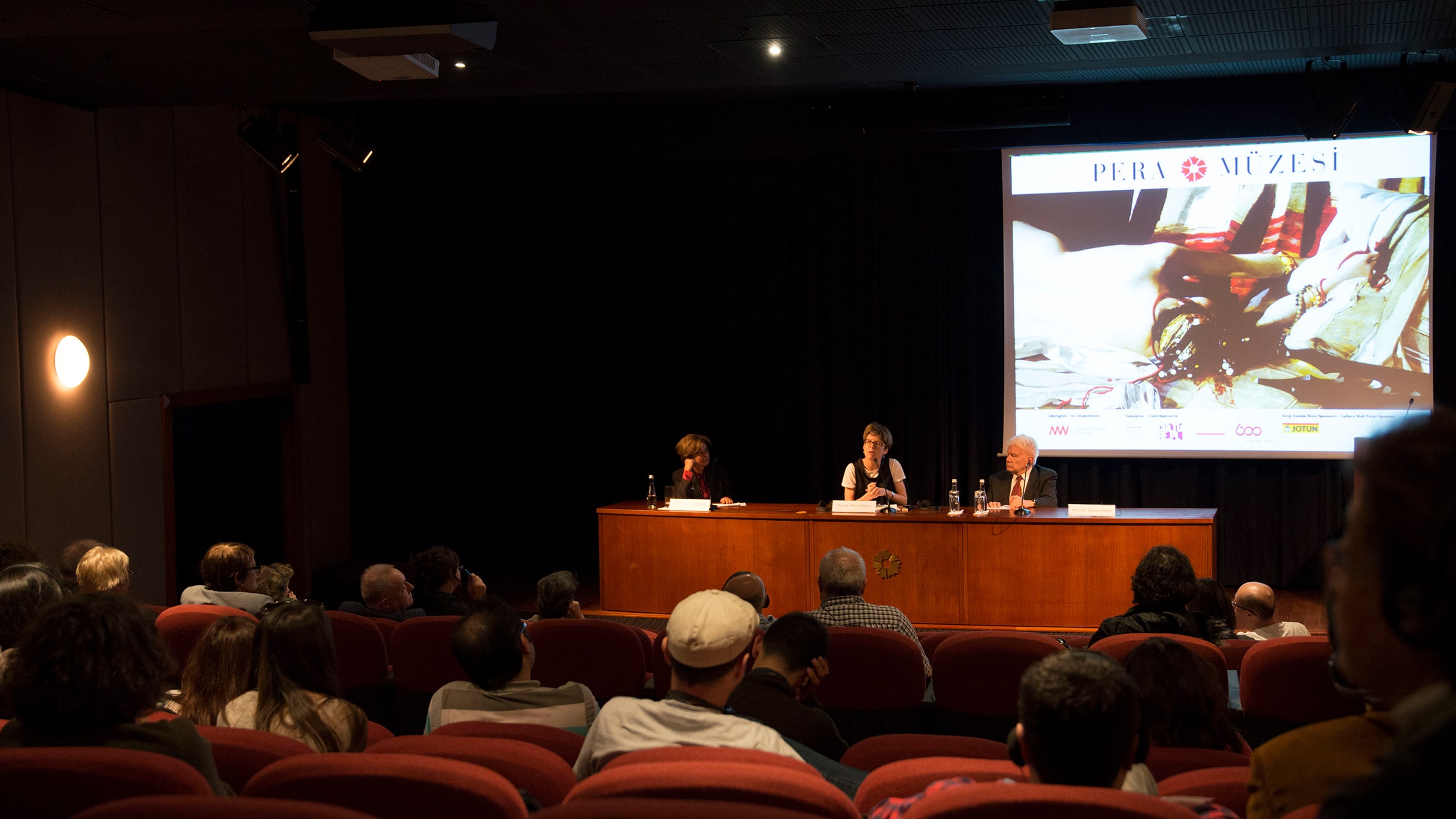October 24, 2014 - January 18, 2015
The exhibition highlighted the orientalist trend in Polish painting, as well as drawings and graphic arts. The works in the exhibition covered a wide period from the 17th to the early 19th centuries. Among others, the exhibition included drawings by Christian Kamsetzer of his Turkish travels, as well as oriental scenes by artists like Żmurko and Brandt. The artworks exemplify topics related to the Ottoman world, and to a lesser extent, the Near East and North African regions.
One section of the exhibition was dedicated to Stanisław Chlebowski, the court artist of Sultan Abdülaziz. Works by other artists who had visited Turkey, among them Jan Matejko, Wacław Pawliszak, Jan Ciągliński, and Jacek Malczewski, were also included.
Selected from the collections of Polish institutions ranging from the National Museums in Warsaw, Kraków, Poznań, and Wrocław, the University Library in Warsaw, to Łazienki Palace Museum, the exhibition brought together approximately 190 works.
The exhibition was organized as part of the 2014 cultural program, celebrating the 600th anniversary of Polish-Turkish diplomatic relations.
in collaboration

contribution by
Exhibition Catalogue

Orientalism, which refers to a cultural current in Europe centered on an interest in the cultures of the East, manifests itself in art, architecture, music, literature, and the theatre. It sprang...

As a result of its geographical location, Poland has always been in close contact with Eastern cultures. Coupled with the Orientalist tendencies of the 19th century, this cultural interaction has led to original outcomes in various fields of art and life. The "Orientalism in Polish Art" Symposium aims to examine these outcomes.
Video

Józef Brandt harboured a fascination for the history of 17th century Poland, and his favourite themes included ballistic scenes and genre scenes before and after the battle proper –all and sundry marches, returns, supply trains, billets and encampments, patrols, and similar motifs illustrating the drudgery of warfare outside of its culminating moments.

Henryk Weyssenhoff, author of landscapes, prints, and illustrations, devoted much of his creative energies to realistic vistas of Belorussia, Lithuania, and Samogitia. A descendant of an ancient noble family which moved east to the newly Polonised Inflanty in the 17th century, the young Henryk was raised to cherish Polish national traditions.
Tuesday - Saturday 10:00 - 19:00
Friday 10:00 - 22:00
Sunday 12:00 - 18:00
The museum is closed on Mondays.
On Wednesdays, the students can
visit the museum free of admission.
Full ticket: 300 TL
Discounted: 150 TL
Groups: 200 TL (minimum 10 people)